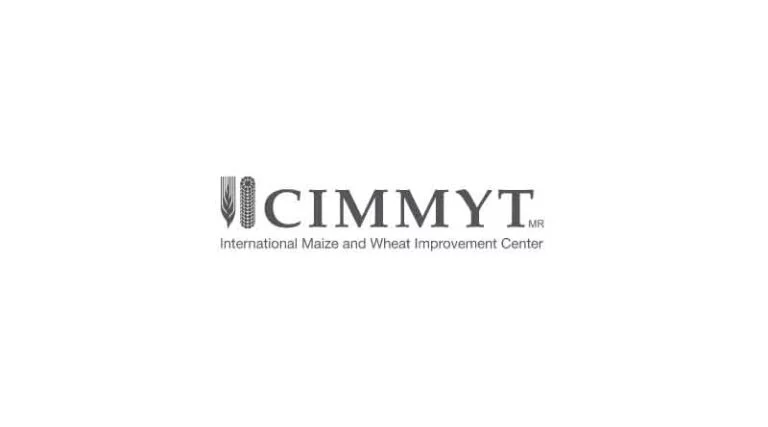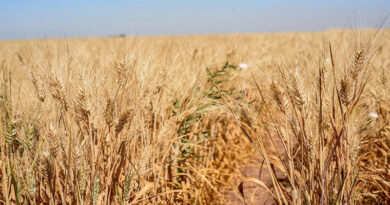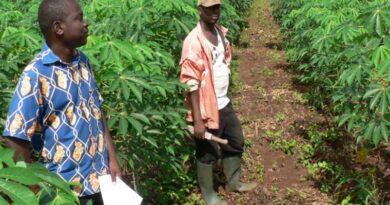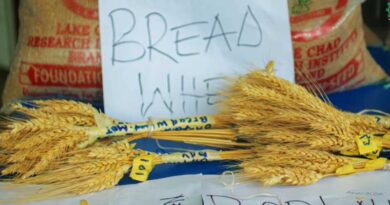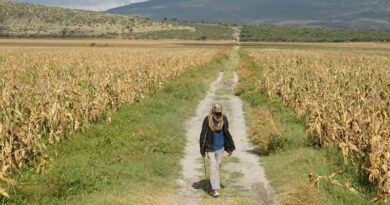Breeding for the traits of tomorrow
04 October 2023, Africa: Climate change poses a significant challenge to agricultural production and food security worldwide. “Rising temperatures, shifting weather patterns and more frequent extreme events have already demonstrated their effects on local, regional and global agricultural systems”, says Kevin Pixley, Dryland Crops Program director and Wheat Program director a.i. at CIMMYT. “As such, crop varieties that can withstand climate-related stresses and are suitable for cultivation in innovative cropping systems will be crucial to maximizing risk avoidance, productivity and profitability under climate-changed environments.”
In a new study published in Molecular Plant, scientists from CIMMYT, Alliance of Bioversity International and CIAT, the International Institute of Tropical Agriculture (IITA) and national agricultural research programs in Burkina Faso, Ethiopia, Nigeria, Tanzania and Uganda to predict novel traits that might be essential for future varieties of popular crops. Having surveyed nearly 600 agricultural scientists and stakeholders, they identify likely agronomic changes in future cropping systems seeking sustainability, intensification, resilience and productivity under climate change, as well as associated essential and desirable traits, especially those that are not currently prioritized in crop improvement programs.
Focusing on six crops which hold vital importance for African food security and CIMMYT and CGIAR’s mission—maize, sorghum, pearl millet, groundnut, cowpea and common bean—the authors review opportunities for improving future prioritized traits, as well as those they consider ‘blind spots’ among the experts surveyed.
Predicting future essential traits
The results of the study speak to the need for considering cropping systems as central to climate change resilience strategy, as well as the need to reconsider the crop variety traits that will eventually become essential.
Overall, experts who participated in the survey prioritized several future-essential traits that are not already targeted in current breeding programs — mainly water use efficiency in pearl millet, groundnut, and cowpea; adaptation to cropping systems for pearl millet and maize; and suitability for mechanization in groundnut. The survey confirmed that many traits that are already prioritized in current breeding programs will remain essential, which is unsurprising and consistent with other recent findings. While smarter and faster breeding for currently important traits is essential, the authors suggest that failure to anticipate and breed for changing needs and opportunities for novel characteristics in future varieties would be a big mistake, compromising farmers’ resilience, improved livelihood opportunities, and food security in the face of changing climate.
Importantly, the authors explain, the predicted future-essential traits include innovative breeding targets that must be prioritized. They point to examples such as improved performance in inter- or relay-crop systems, lower nighttime respiration, improved stover quality, or optimized rhizosphere microbiome, which has benefits for nitrogen, phosphorous and water use efficiency.
The authors emphasize that the greatest challenge to developing crop varieties to win the race between climate change and food security might be innovativeness in defining and boldness to breed for the traits of tomorrow. With this in mind, they outline some of the cutting-edge tools and approaches that can be used to discover, validate and incorporate novel genetic diversity from exotic germplasm into breeding populations with unprecedented precision and speed.
(For Latest Agriculture News & Updates, follow Krishak Jagat on Google News)

